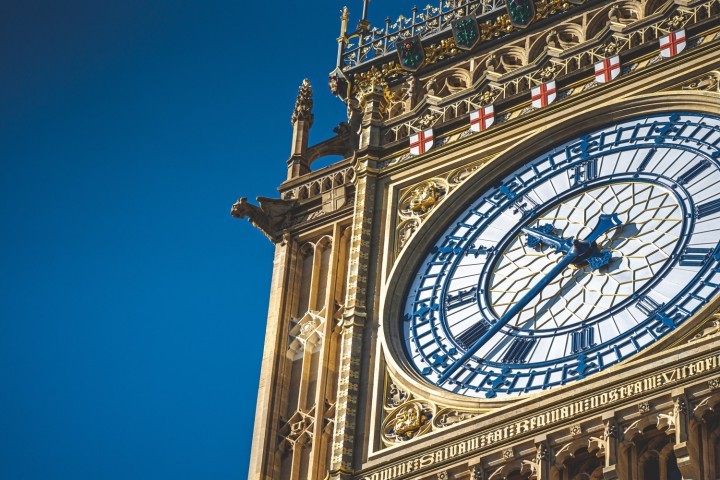An increase in the VAT threshold for businesses and national insurance cuts for individuals caught the most attention in chancellor Jeremy Hunt's Spring Budget.
With a general election looming, it was expected that the chancellor would make announcements that would win over voters, though commentators say there was little by way of surprise.
Roger Phillips, tax partner at PM+M, said: "There was limited scope for any sizeable changes to tax, spending or borrowing. With the spectre of Kwarteng and Truss’ dual legacy still in the air, coupled with it being an election year, the chancellor simply couldn’t risk being seen as fiscally irresponsible.
"He had to tread a fine line of giving away something to appease the right in his own party but without spooking the markets. I don’t think he could have feasibly done much more as unfunded and grandiose tax cuts were – thankfully - off the table.
"By choosing the cheaper - and some might say less headline grabbing - option of cutting national insurance by a further 2 per cent rather than slashing income tax, the chancellor has professed to putting more money in the coffers of millions of working people. The changes should mean that someone who earns £30,000 a year will be around £58 'better off' a month when the national insurance cuts that were announced in the Autumn Statement are factored in. However, when you look at it in the round, it will have little impact as we are all still facing the highest tax burden in recent memory – as he didn’t take the opportunity to increase the personal allowance or tax thresholds – and therefore the effect of fiscal drag will likely outstrip the NIC saving for many.
"Cutting income tax would have been significantly more expensive as it benefits both workers and pensioners. The announced cut of 2 per cent in employee NIC will cost about £10bn a year, whilst a 2p cut in income tax would have cost £13.7bn a year. I also had concerns that if he did capitulate to the right - and had cut income tax or announced a raft of short-termism, vote grabbing measures - there might have well have been inflationary consequences, so I think he’s made the right call, especially as the government is so constrained by the highest public sector debt levels since the 1960’s, low public spending, weak economic growth and overall tax levels that are beyond the highest level as a share of GDP, since World War II."
Matthew Johnson, associate partner WNJ Chartered Accountants and business advisors, added: "The raising of the VAT threshold for small businesses announced by Jeremy Hunt in his Budget statement is undeniably welcome news. However, raising in to £90,000 falls short of the £100,000 figure that the Federation of Small Businesses had been calling for. Also, it has to be pointed out this is the first increase in seven years.
"The hospitality industry will welcome the extension to the freeze on alcohol duty but there will be disappointment the VAT changes didn’t include measures specifically designed to help a sector that continues to be under real pressure. The VAT rate for hospitality and tourism businesses was reduced during the pandemic but that scheme came to an end in April 2022. Any new measures to ease the burden would have been widely welcomed. The chancellor said the government was backing 'the great British pub'. The industry may well have a different opinion."
Tony Medcalf, tax partner at MHA Moore and Smalley, said: "Chancellor Jeremy Hunt has been warned repeatedly by leading economists in recent weeks about the need to prioritise increasing public spending over further widescale tax cuts and any significant reduction in headline business taxes always seemed unlikely.
“The intention to extend full expensing to leased assets will be welcomed, particularly by businesses in industries which rely heavily on plant and machinery, but the chancellor did not commit to a date when this would be implemented.
“The majority of other business announcements were region or industry specific, including a further £270m announced to help advanced manufacturing industries explore zero emission vehicle and aviation technology.
“The mantra throughout the chancellor’s speech was lower taxes equals higher growth and he signalled the intent to continue to cut national insurance and other personal taxes in the coming years as the economy allowed, a clear message to voters ahead of the general election.”
Rebecca Bradshaw, director at Rotherham Taylor, added: "The chancellor’s leading measures revealed a person-centred approach to the Budget which reflects the fact that businesses cannot vote. Despite this, while there were plenty of measures in the Budget designed for growth and getting the UK to the forefront of certain industries, we can see that there wasn’t enough support for small businesses as a whole.
"Outside of specific industries, those measures just weren’t there in sufficient quantity. Although, that doesn’t mean that this was a poor Budget for SMEs or that it purely focused on individuals, because this isn’t the case. In fact, some businesses will benefit from measures which also target individuals, such as the freeze in fuel duty for another 12 months.
"What it does mean is that the Treasury’s priorities are currently elsewhere, so businesses will need to proceed with caution as new economic measures target support at individuals prior to a general election.”
Enjoyed this? Read more from Tim Aldred























